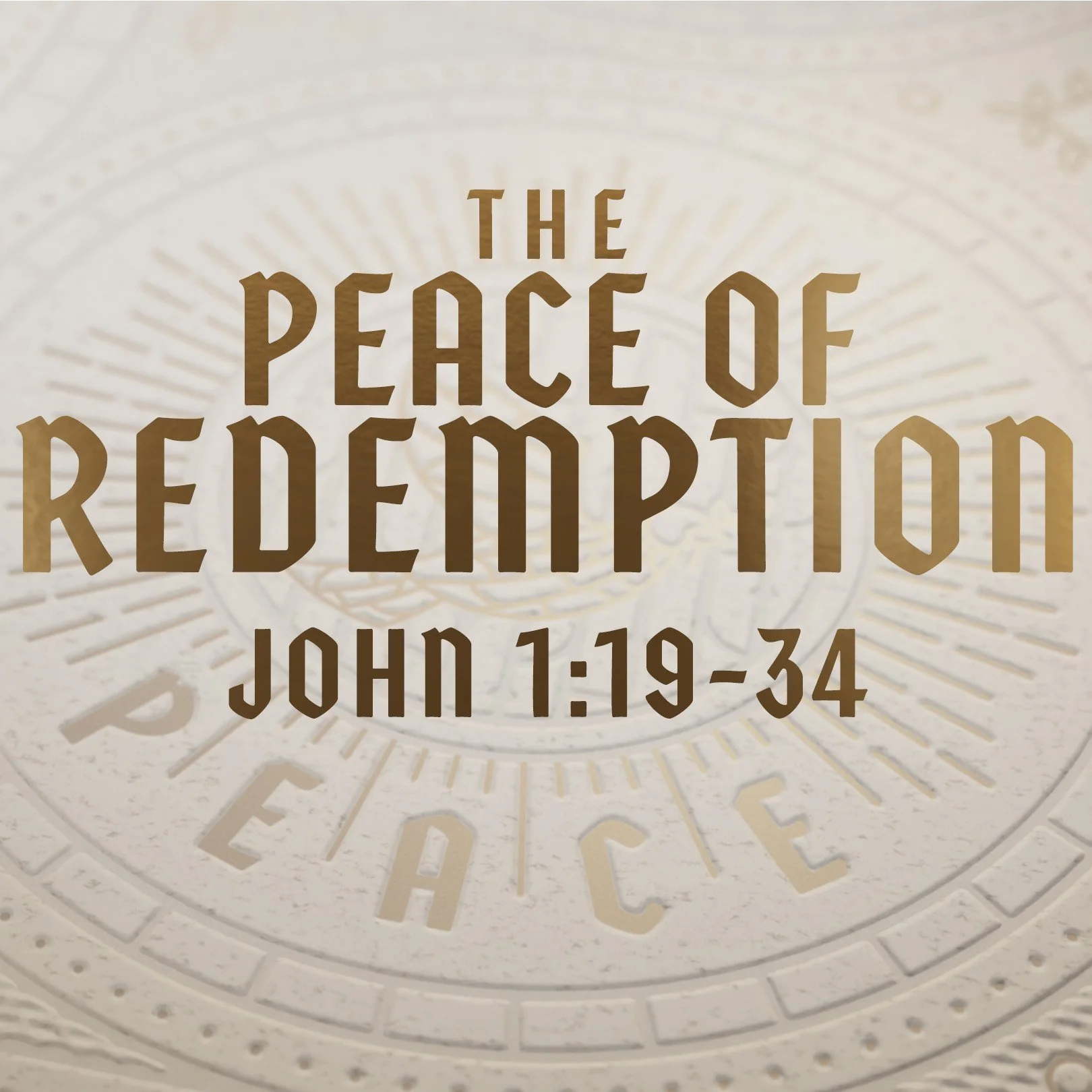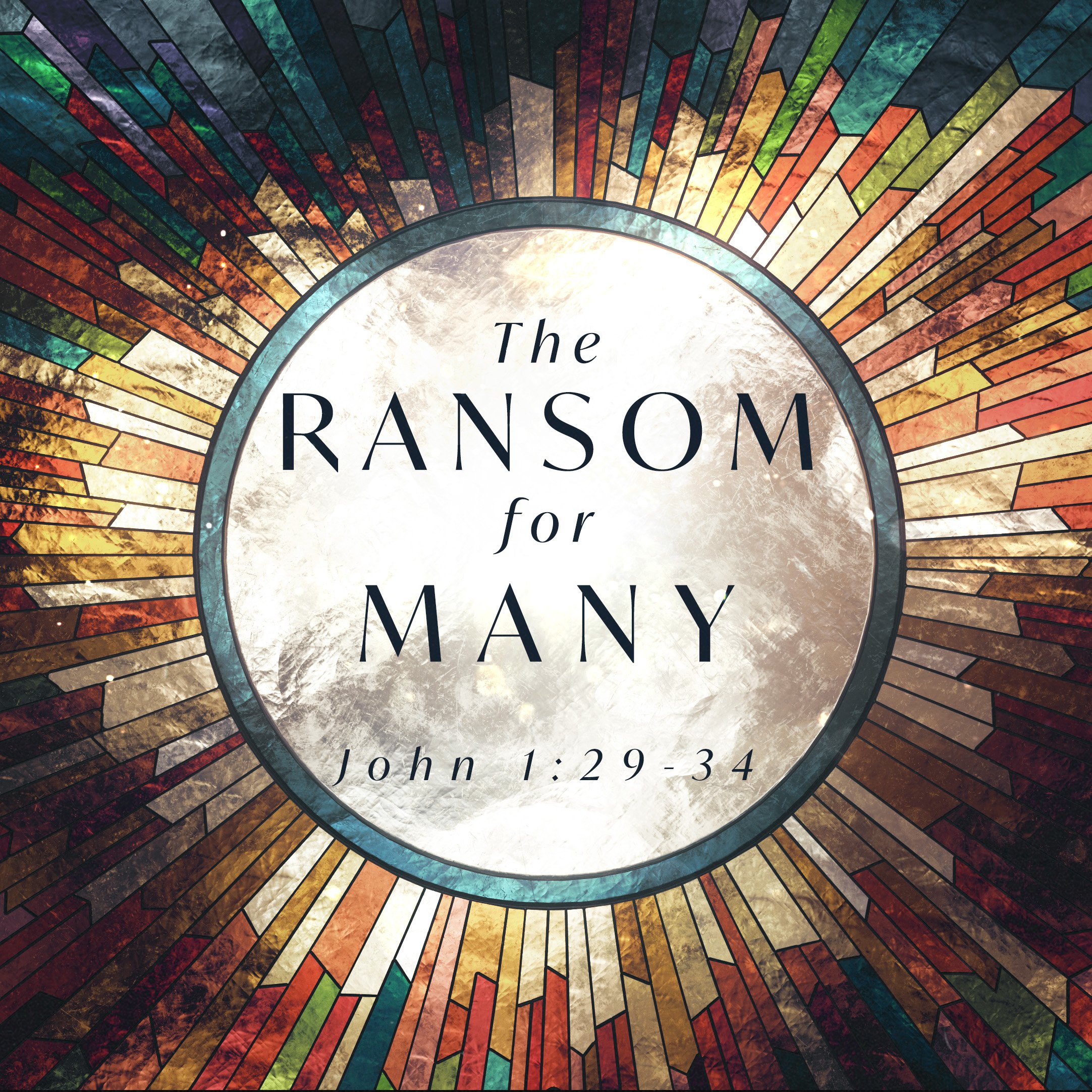All for the Kingdom
Sermon Podcast
The Peace of Redemption, John 1:19-34
John the Baptist had one message for the crowds: "Behold the Lamb of God who takes away the sin of the world!" In this sermon on John 1:19-34, Pastor Ben Smith examines John's testimony of who Jesus is. John pointed to Jesus and declared two essential truths: Jesus is the Lamb of God, and Jesus takes away your sin. The wait is over. The promise has been fulfilled. Behold the Lamb of God.
The Joy of Salvation, John 1:14-18
"The Word became flesh to reveal the glory of God, the grace and truth of God, and to provide for sinners to be saved from the wrath of God. See the birth of Jesus for what it is: the eternal God, coming in the flesh to be in the presence of man to reveal His glory."
The Faith that Saves, John 1:6-13
Salvation is not determined by man's worthiness but by God's authority. It is impossible for sinful man, blind in sin, to receive and believe on Jesus for salvation. But God, rich in mercy, grants with His power and authority, by grace alone, for sinners to receive and believe in faith on Jesus and to become children of God. From beginning to end, salvation is entirely the work of God—a truth that brings both humility and unshakable hope to all who trust in Christ.
The Hope of Christ, John 1:1-5
The confidence you have in a promise is dependent on the one who guarantees the promise. The assurance of the gospel is singularly founded on the personhood of Jesus. Being the incarnate eternal God through whom all things were created and in whom the eternal redemptive plan of God is fulfilled. Jesus is not limited by the fragility of man—He has always been, He is, and He will always be. The hope of the gospel rests on God alone. And this is the hopeful word of verse 5: even though the world opposes the light, it will not overcome the light. Like the sunrise that dispels the grip that darkness has on the world and demands that it surrender in defeat, so is the glory of the light of the gospel. Darkness is presently warring against the light, but it will not overcome it.
The One Who Sets Captives Free, John 8:31-38
In the days of Jesus’ birth, Israel was not a free nation. They were unhappily under the control and rule of Rome. But God was doing more than bringing political relief. Jesus the Messiah brought freedom from the enslavement of sin.
Let us rejoice that Jesus, the Messiah, has come to set us free from the bondage of sin so that we might be transformed from slaves to sons and have the assurance of hope.
The King of kings, John 1:43-51
Scripture declares Jesus as the King of kings. But what does this title mean?
In the Old Testament, the title of king of kings is used three times to reference an earthly king with no equal.
In the New Testament, the first reference to Jesus as the King of kings is in 1 Timothy 6:15, where Paul encourages the church to remain faithful until Jesus returns. But the most often quoted biblical references to Jesus as the King of kings comes from John's revelation, where Jesus in His second coming is described as the King of kings.
In this passage from John, we have the first reference in his gospel account, referencing Jesus as king. I want you to see from this passage that you must submit to the King and invite others to follow the true king. And when you come to know Jesus as the true king, it is only the beginning of greater glories to be revealed and known.
The Ransom for Many, John 1:29-34
Who you recognize Jesus to be determines how you respond to Jesus.
Suppose you see Jesus as an interesting historical figure of the first century. In that case, you may give a passing interest to his life and impact on the world but will pay little attention to him beyond what your curiosity will drive. If you see Jesus as a great moral person, you may respect him for the life he lived and think it may be a good idea to emulate his example. Suppose you see Jesus as a wise or insightful religious teacher. You may feel compelled to study his lessons and even incorporate his teachings into your life.
Toward the end of John's ministry and the beginning of Jesus', he saw Jesus coming toward him. He shouted for all to hear, "Behold the lamb of God who takes away the sin of the world!" He went on to say that Jesus was the son of God and the one for whom God had called him to prepare the way.
John wanted his disciples and all those who listened to him to know who Jesus is and what he came to do so that they might know true salvation found only in Jesus. Thus, he was focused on pointing the world to Jesus so that we might see who He is, know what He has done, and receive the gift of salvation.
The Salvation from sin, John 1:14-18
The first chapter of John’s gospel is packed with some of the most amazing statements in all of scripture. John 1:14-18 is one of those passages. John declares in verse 14 that the Word became flesh and dwelt among us. The importance of this statement cannot be overstated.
Jesus, who is all God and all man, came to dwell amongst humanity.
Jesus, who is all God and all man, lived without sin.
Jesus, who is all God and all man, died on the cross as a substitute and sacrifice for man’s sin.
Jesus, who is all God and all man, rose from the dead three days later.
These truths are central and fundamental to Christianity. If you deny any one of them, you deny them all and the entirety of Christianity. John would say more about how Jesus worked to save us from our sins. Still, in these opening verses, he makes clear that Jesus is the promised Messiah, who demonstrates the grace of God so that we might know God the Father.
The Light of Men, John 1:4-9
One of the marvels of modernity is the ability to push back the darkness. No longer are the schedules of our lives dictated by the sun's rising and setting. However, even with this transformational invention, man remains dependent on the presence of light. Light reveals what is. Light exposes the truth and deposes lies.
One of the most basic things we rely on light for is the ability to move around and find our way. Without light, we are lost. Not confused, not turned around but hopelessly lost. Without light, direction has no meaning. And yet even the faintest light can mean the difference between life and death.
John begins his gospel account with this most powerful introductory word: "In him was life, and the life was the light of men. The light shines in the darkness, and the darkness has not overcome it."
Jesus is the genuine light of God that dispels the darkness of this world and has overcome the curse of sin.
The Name: Lord Jesus, Matthew 3:1-12
The birth of Jesus is an amazing event. His birth is why we celebrate Christmas. As Matthew retells the birth story, he repeatedly reminds us that these events were the fulfillment of the prophecies that foretold of the coming messiah. Even the family’s escape to Egypt and return to Nazareth (2:13-23) were part of God’s perfect plan. But amazing as the birth and all the events around it are – the birth is not the end of the story.
The birth of Jesus is important but why He was born is even more important. Matthew 3 begins to tell the story of who Jesus is and why Jesus was born. Jesus is the Lord of all creation. The Lord of all creation came to die that we might be saved
The Name: Immanuel, Matthew 1:21-23
When the angel revealed to Joseph that Mary was pregnant with the Messiah, he was declaring that the long wait was over. The long-anticipated Messiah was coming. The Christ has arrived.
The name that the prophet Isaiah gives the messiah is Immanuel. As Matthew recounts the encounter Joseph had with the angel, he reminds us that this name means “God with us.” God stepped out of the glory of heaven to dwell among and with us.
The prophets sang, “Oh come, oh come Immanuel.” The angel declared to Joseph Immanuel had come. Through Jesus, we know the amazing love of God's presence, and sacrifice. And through the love of Jesus, we are transformed.
The Name: Brings Hope, Jeremiah 33:14-16
God made a promise to Abraham to bless all the families of the earth through him. God added to this promise when He promised king David (a descendant of Abraham) that his kingdom would last forever with a descendant of his on the throne. These promises, and many more, were fulfilled in Jesus, a descendant of Abraham, a member of David’s family, and the lamb of God who would take away the sin of the world.
In these three verses, there are three promises that give us hope. These were words of hope for Juda for their restoration from captivity. And looking beyond the near horizon to what is beyond these are words of hope for all the world that there is salvation in Jesus.













